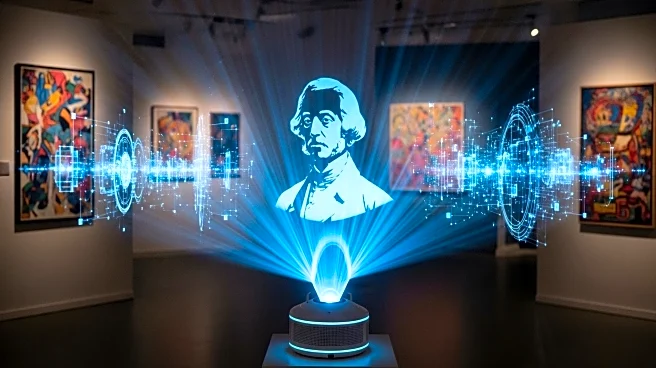What's Happening?
OpenAI's new text-to-video app, Sora, has sparked controversy due to its ability to generate deepfakes of deceased historical figures. The app, which allows users to create AI-generated videos, has been downloaded over a million times from the iOS App Store. While it offers users the ability to adjust the availability of their likeness in videos, it has raised concerns about the creation of videos featuring deceased celebrities and historical figures without their consent. Examples include videos of President Dwight Eisenhower, Margaret Thatcher, and John F. Kennedy in fabricated scenarios. Family members of deceased individuals, such as Robin Williams and Martin Luther King Jr., have expressed their disapproval of these deepfakes, urging users to stop creating them.
Why It's Important?
The emergence of deepfakes of deceased individuals poses significant ethical and legal challenges. It raises questions about consent and the protection of intellectual property rights for deceased personalities. The ability to manipulate historical events and figures through AI-generated videos could lead to misinformation and erosion of trust in genuine media. This technology could impact various sectors, including entertainment, politics, and public policy, by undermining democratic processes and influencing public perception. The app's popularity highlights the need for robust regulations and tools to detect and manage AI-generated content effectively.
What's Next?
OpenAI plans to implement more granular control for rightsholders over the generation of characters in Sora. The company aims to provide tools for tracing AI-generated content to assist platforms in identifying such materials. However, the effectiveness of these measures remains uncertain, as visible watermarks and metadata can be easily removed. The ongoing development of AI detection tools by companies like Reality Defender and McAfee suggests a growing industry focus on combating deepfake technology. The broader implications for media trust and the protection of historical legacies will continue to be a topic of debate.
Beyond the Headlines
The rise of deepfakes highlights the ethical dilemma of using AI to recreate deceased individuals without their consent. It challenges existing legal frameworks and raises questions about the preservation of historical accuracy. As AI technology advances, the ability to distinguish between real and AI-generated content becomes increasingly difficult, potentially altering public perception and historical narratives. The cultural impact of deepfakes on society and the legacy of historical figures will require ongoing scrutiny and adaptation of legal and ethical standards.










